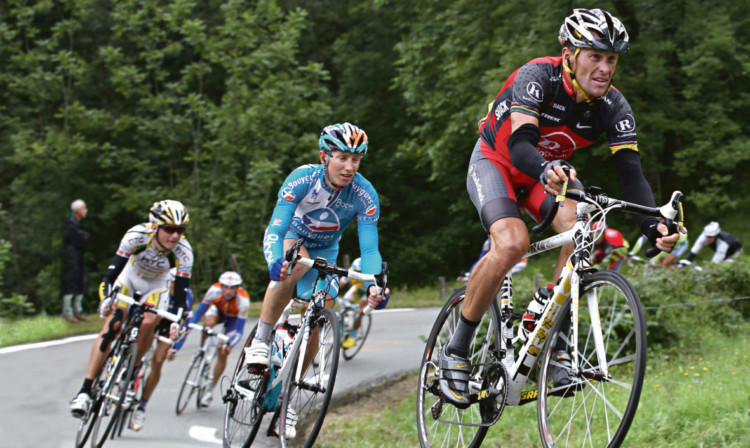
The new president of the World Anti Doping Agency, Sir Craig Reedie, is determined to take on sports’ cheats.
He’s been described as the most powerful man in British sport, but even many diehard sports fans won’t have heard of him. Stirling-born Sir Craig Reedie has been a leading light in sports administration for more than 40 years. He’s had key roles with the British Olympic Association and the International Olympic Committee, and was also closely involved in London’s successful bid for the 2012 Olympics. As the newly-appointed President of the World Anti Doping Agency (WADA) he is leading the battle against drugs in sport. He told us why the fight against drugs cheats needs to go on and why he is looking forward to this year’s Commonwealth Games in Glasgow.
Why does sport matter?
I think people are better people if they play sport in some way. At school I played rugby in a team and badminton individually. Every sport is different but character-forming.
What’s your earliest sporting memory?
Playing football for my Scout troop in Stirling. I also took up badminton in the Mission Hall in Causewayhead just outside Stirling. When I went to university in 1959 I joined the badminton club. We were in the fifth division of the west of Scotland league and in successive years we were promoted to the first division. In terms of a sporting event, my uncle gave me a ticket to watch Real Madrid play Eintracht Frankfurt in 1960 at Hampden. It was the famous 7-3 European Cup Final game. I stood on the terracing and saw football unlike anything I’d seen before.
What’s your best sporting memory?
Seeing badminton’s first gold medal being won in 1992 in Barcelona by the Indonesian woman Susi Susanti. She was a Roman Catholic in a country with the world’s largest Muslim population, and won their first Olympic gold medal. A million people lined the streets to welcome her home.
How did you get involved in administration?
I won the occasional open doubles badminton tournament, and was irritated not to be picked for Scotland. With reflection, I think the selectors were probably right. As a result I ended up on the administration side. I became involved with the Scottish Badminton Union and remember the arguments over which sports would be in the 1970 Commonwealth Games in Edinburgh. Rowing would have been held on Loch Lomond, but the wind blew in the wrong direction! Badminton was chosen instead.
Can the fight against drugs be won?
We can make very substantial inroads. I’d question whether it can be won if there are drugs in society, because sport is part of society. People will try to cheat we just have to minimise that number.
How big a threat to sport are drugs?
They’re a major threat to Olympic sport. The other is match-fixing and betting, which Olympic sport isn’t prone to. However, athletes in all sports have been known to cheat by taking prohibited substances. If we can’t stop that then people won’t believe in sport. If all athletes were allowed to use drugs, it’s unlikely it would be good for their health and the people with the most money and best access to doctors would win all the medals. I don’t think that’s fair.
What does the World Anti Doping Agency do?
WADA came about after the Festina cycling disaster in 1999, when the French police stopped the trainers’ cars and found they were full of drugs. It was a huge scandal and the IOC decided something needed to be done. WADA was set up as an independent body involving sport and governments. We have a responsibility for the development and enforcement of the world anti-doping code. Our role is to protect clean athletes.
What’s in the pipeline?
From January 1, 2015, anyone who dopes will be suspended for four years a pretty serious sanction. There will also be an obligation on WADA and individual sports to develop a specific testing menu for each sport it would be pointless giving chess players human growth hormone. The changes should make the testing more accurate, cheaper and, hopefully, more effective. The new code also includes an athlete’s entourage, such as coaches, managers and doctors.
Should athletes who cheat by using drugs be banned for life?
There’s no point giving a lifetime ban for a sporting offence which will promptly be challenged in the courts and overturned. Being out for four years is a long time in any athlete’s career.
Are you confident the Winter Olympics in Sochi will be drugs-free?
We’ve made sure our lab in Moscow is backed up with experts from outside Russia. The IOC wants to do about 2,300 tests in the run-up to and during the Games. Prior testing was one of the successes of London 2012 very few people tested positive in competition but around 30 athletes didn’t go to London at all because of prior testing.
Are you excited about the Commonwealth Games in Glasgow?
I’m thoroughly looking forward to them! Glasgow is in good shape most of the facilities are there, the village is being built and Hampden is being converted in an innovative way. They are building a £14m platform to support the athletics track, which can be taken away afterwards. The alternative would be an expensive stadium that would cost money to maintain afterwards.

Enjoy the convenience of having The Sunday Post delivered as a digital ePaper straight to your smartphone, tablet or computer.
Subscribe for only £5.49 a month and enjoy all the benefits of the printed paper as a digital replica.
Subscribe